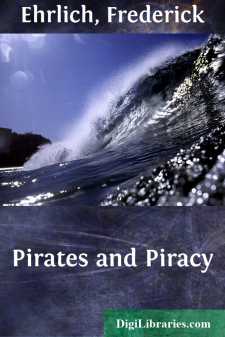Categories
- Antiques & Collectibles 13
- Architecture 36
- Art 48
- Bibles 22
- Biography & Autobiography 813
- Body, Mind & Spirit 142
- Business & Economics 28
- Children's Books 17
- Children's Fiction 14
- Computers 4
- Cooking 94
- Crafts & Hobbies 4
- Drama 346
- Education 46
- Family & Relationships 57
- Fiction 11829
- Games 19
- Gardening 17
- Health & Fitness 34
- History 1377
- House & Home 1
- Humor 147
- Juvenile Fiction 1873
- Juvenile Nonfiction 202
- Language Arts & Disciplines 88
- Law 16
- Literary Collections 686
- Literary Criticism 179
- Mathematics 13
- Medical 41
- Music 40
- Nature 179
- Non-Classifiable 1768
- Performing Arts 7
- Periodicals 1453
- Philosophy 64
- Photography 2
- Poetry 896
- Political Science 203
- Psychology 42
- Reference 154
- Religion 513
- Science 126
- Self-Help 84
- Social Science 81
- Sports & Recreation 34
- Study Aids 3
- Technology & Engineering 59
- Transportation 23
- Travel 463
- True Crime 29
Pirates and Piracy
Description:
Excerpt
INTRODUCTION.
There is hardly a person who, as a school-boy, had not received the fire of imagination and the stimulus for adventure and a roaming life through the stirring narratives concerning Captain Kidd and other well-known sea rovers. A certain ineffable glamor metamorphosed these robbers into heroes, and lent an inalienable license to their “calling,” so that the songster and romancist found in them and their deeds prolific and genial themes, while the obscure suggestions of hidden treasures and mysterious caves have inspired many expeditions in quest of buried fortunes which, like the Argo of old, have carried their Jasons to the mythical Colchis.
The pens of Byron, Scott, Poe, Stevenson, Russell, and Stockton, and the musical genius of Wagner, were steeped in the productive inspiration of these lawless adventurers, and Kingsley found in Lundy Island, the erstwhile nest of the reckless tribe, a subject for his “Westward Ho!”
Byron, in “The Corsair,” sings:
O’er the glad waters of the dark-blue sea,Our thoughts as boundless, and our souls as free,
Far as the breeze can bear, the billows foam,
Survey our empire, and behold our home!
These are our realms, no limits to their sway,
Our flag the sceptre all who meet obey.
Ours the wild life in tumult still to range
From toil to rest, and joy in every change.
Piracy was the growth of maritime adventure, and developed with the advancement of commerce. The Phœnicians and Greeks were especially apt in the interstate wars which frequently degenerated into rapine and plunder, and with them piracy became a recognized enterprise. In Homeric times it was dignified with a respect worthy of a nobler cause—a sentiment in which the freebooters of later centuries took arrogant pride. The pirate—cruel, vicious, debased to the lowest degree of turpitude—established a moral code governing his actions and circumscribing his wanton license, and it was in the rigorous observance of these “trade laws” and customs of their realm that this abortive sense of honor manifested itself.
The successes of the Phœnicians and Greeks soon made the Mediterranean the theatre of maritime robbery, in later years conducted under the authority, sanction, and immunity of the Barbary powers. In fact, so reckless had the enterprise become that the temerity of the free lances knew no bounds, and headquarters, so to speak, were established, and for a long time maintained, at Cilicia.
The vigorous campaign of Pompey in 67 against the pirates was but the precursor of that systematic defence which the nations of the world eventually adopted. The Hanseatic League of the cities of Northern Germany and neighboring states, no doubt, had its origin in the necessitous combination of merchants to resist the attacks of the Norsemen. England sent out many expeditions to destroy the pestiferous freebooters who swarmed from the African coast, and finally, in 1815, the United States sent Decatur to Algiers to annihilate the nefarious corsairs, who had thrived and become brazen in their recklessness during the three centuries of their ascendant power. The incursions of the Algerine pirates were made as far north as England, Ireland, and Iceland, and through them an iniquitous slave trade was developed. The law of nations did not place its ban upon this slave traffic until by statute England and the United States attempted to obliterate this ineradicable blot upon our civilization, and only a half century ago Austria, Prussia, and Russia declared it to be piracy.
Piracy, by the law of nations, is punishable with death within the jurisdiction of any nation under whose flag the capture may have been made, for the pirate is the common enemy of mankind. Although it has passed the zenith of its perverse glory, and modern naval development has made it impracticable and impossible, vestiges of piracy remain in the Malay Archipelago and the China Sea....


